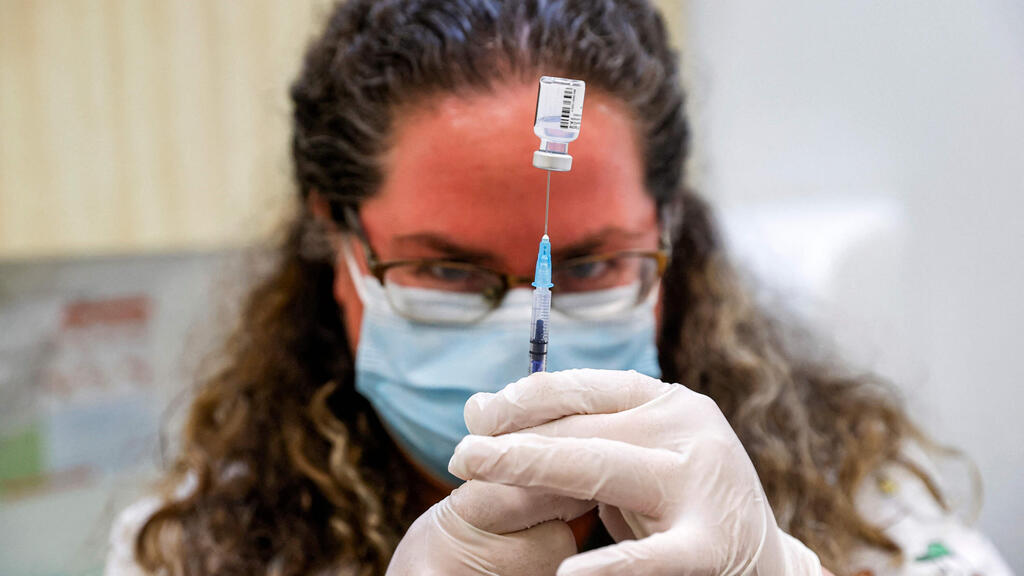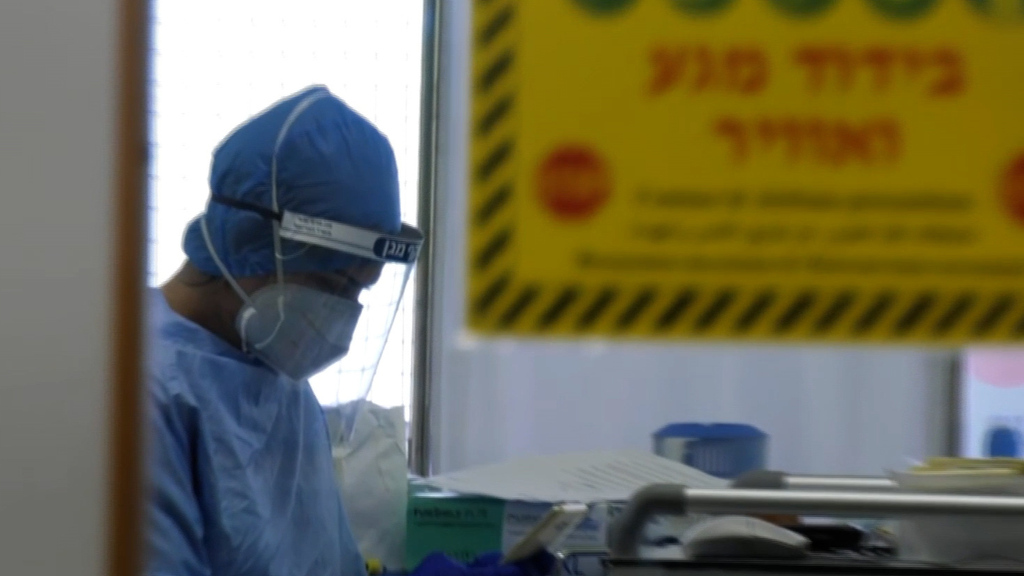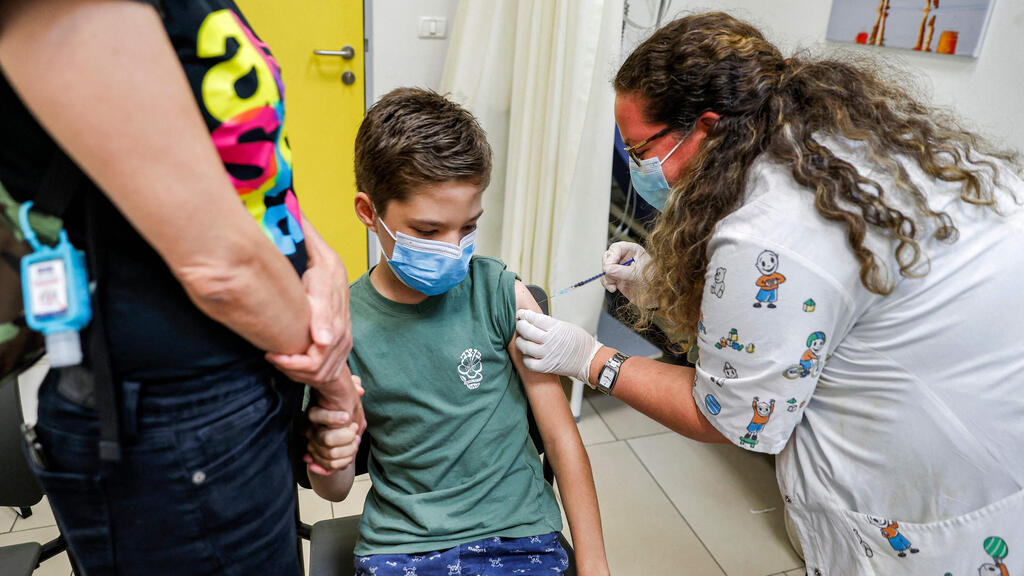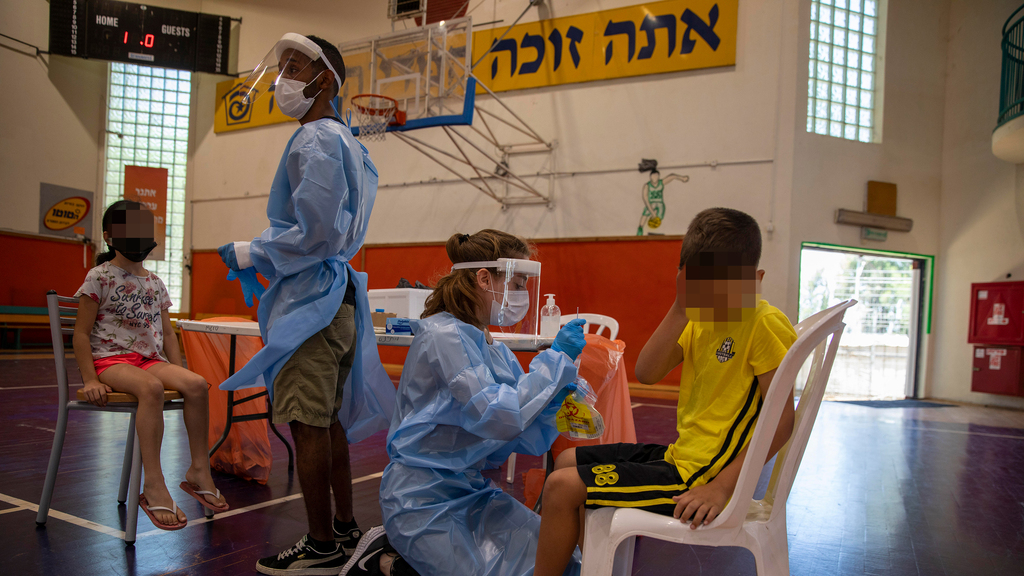Getting your Trinity Audio player ready...
Israel is sending 700,000 coronavirus vaccine doses to South Korea in exchange for a future shipment of the jabs, Prime Minister Naftali Bennett said Tuesday.
In a statement, Bennett said Israel will transfer the Pfizer vaccines to South Korea in an effort to inoculate more of the Asian nation's citizens this month. South Korea will return the same number of doses to Israel as soon as September, he added.
4 View gallery


A nurse prepares to administer the coronavirus vaccine in Tel Aviv last week
(Photo: AFP)
"This is a win-win deal," Bennett said in his statement. The agreement will "reduce the holes" in the vaccine's availability.
Bennett said the agreement, which he personally negotiated with Pfizer CEO Albert Burla, is the first of its kind between Israel and another country. The Israeli vaccines still need to be tested after their arrival in South Korea, he added.
Korea Disease Control and Prevention Agency (KDCA) Director Jeong Eun-kyeong said the deal will allow South Korea to accelerate its vaccination plans, including providing shots to employees in some sectors that have a high amount of contact with other people.
Local authorities will decide who gets the vaccines, but she said some possible examples may include street cleaners, delivery workers, and retail employees.
South Korean authorities said last week they are hoping to achieve herd immunity earlier than the current November target by inoculating at least 70% of the population with a minimum of one vaccine dose, mostly mRNA ones such as Pfizer's.
Jeong said if the vaccination drive goes according to plan and South Korea finds itself with surplus doses later in the year after sending back the agreed doses to Israel, it too will look to share its stockpile with other countries.
4 View gallery


A medical team member in the dedicated coronavirus section of an internal medicine ward at the Rambam Health Care Campus in Haifa
(Photo: Shamir Elbaz)
South Korea has been battling persistent small outbreaks, prompting officials to delay some easing of social distancing rules. The KDCA reported 746 more COVID-19 cases as of midnight Monday, raising the country's total to 161,541, including 2,032 total deaths.
The deal comes a few weeks after the Palestinian Authority called off a deal to receive 1 million doses of coronavirus vaccines from Israel. The Palestinians contended that the vaccines were too close to expiring and didn't meet their standards.
Bennett's government on Sunday said it would consider the need to inoculate Israelis with a third dose of the virus after the Health Ministry said vaccines lost some of the efficacy to prevent infections of COVID-19.
While hospitalizations remained low, some health experts warned of an increased risk to immunosuppressed Israelis and others in the over 65 age group or those suffering from underlying conditions.
At least 50% of new infections were confirmed in people who have already received two doses of the vaccine though according to ministry data, they still enjoyed a 93% protection from serious illness.
The coronavirus cabinet is set to meet on Tuesday to discuss further coronavirus restriction after an increase in contagion. More than 440 new cases were confirmed on Monday, according to the ministry.
First published: 09:00, 07.06.21



